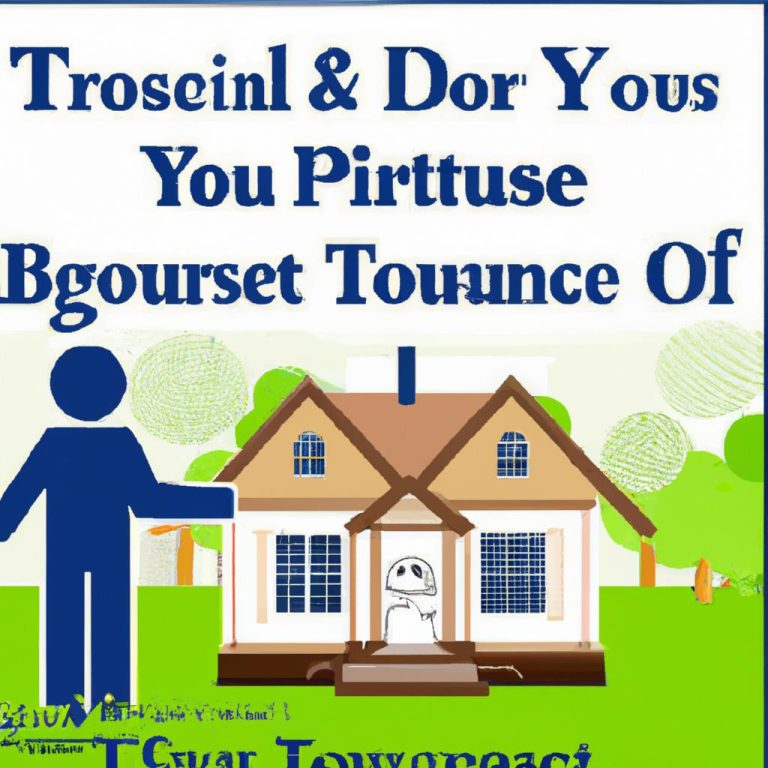The Drawbacks of Placing Your Home in a Trust: Important Considerations
When it comes to planning your estate, many homeowners opt to place their homes in a trust for various reasons, such as avoiding probate, safeguarding assets, and maintaining privacy. While there are undeniable benefits to this approach, it’s crucial to also be aware of the potential downsides before moving forward. In this article, we will delve into the disadvantages of putting your home in a trust and offer insights to help you navigate this decision.
Challenges of Putting Your Home in a Trust
1. Surrender of Control
By transferring ownership of your home to a trust, you relinquish direct control over the property. The trustee, tasked with overseeing the trust, gains the authority to make decisions regarding the home. This means that you may no longer have the freedom to sell, mortgage, or alter the property without the trustee’s consent.
2. Financial Implications
Establishing a trust can be a complex and expensive process. There are legal fees associated with creating the trust, along with ongoing administrative costs for its management. Furthermore, any future amendments or updates to the trust could result in additional expenses. It’s vital to carefully consider these financial implications before proceeding with placing your home in a trust.
3. Limited Tax Advantages
While trusts can offer tax benefits in specific scenarios, transferring your home to a trust may not necessarily yield significant tax advantages for everyone. Depending on the type of trust and your unique financial situation, the tax implications of this decision may not be as favorable as anticipated.
4. Impact on Medicaid Eligibility
If you transfer your home to a trust and later require long-term care, such as nursing home services, the property could be deemed a countable asset for Medicaid eligibility. This could potentially affect your ability to qualify for Medicaid benefits, as the property’s value within the trust may be factored into the eligibility assessment.
5. Challenges in Accessing Funds
Placing your home in a trust can sometimes create obstacles when it comes to accessing funds tied to the property. If you need to borrow against the property or use it as collateral for a loan, the trust structure may lead to delays and complications in obtaining the necessary funds.
6. Complex Administrative Requirements
Administering a trust can be intricate and time-consuming. Trustees are obligated to adhere to specific rules and regulations governing trust administration, which may involve meticulous record-keeping, reporting obligations, and legal duties. If you are not prepared to handle the complexities of trust management, placing your home in a trust may not be the most suitable choice for you.
Final Thoughts
While placing your home in a trust can offer advantages in terms of estate planning and asset protection, it’s essential to carefully evaluate the drawbacks before proceeding. Understanding the potential challenges associated with this decision can empower you to make an informed choice that aligns with your financial objectives. Before finalizing any trust arrangements for your property, seeking guidance from a financial advisor or estate planning attorney is advisable to ensure a comprehensive understanding of the implications and repercussions.
In conclusion, the decision to place your home in a trust is a significant one that warrants thorough consideration of all relevant factors. By weighing the drawbacks outlined in this article, you can make a well-informed decision that best suits your individual circumstances and long-term financial goals.
Pros and Cons of Trusting Your Home: The Downside of Putting Your House in a Trust
Introduction
Deciding whether to put your home in a trust is a significant financial decision that can have both benefits and drawbacks. While there are advantages to placing your house in a trust, it’s essential to be aware of the potential downsides as well. In this article, we will explore the disadvantages of trusting your home and help you make an informed decision.
Downside of Putting Your House in a Trust
1. Loss of control
One of the primary drawbacks of putting your house in a trust is the loss of control over the property. Once you transfer ownership to a trust, you may no longer have the ability to make important decisions about the property, such as selling it or refinancing. This loss of control can be unsettling for some homeowners who prefer to have full autonomy over their assets.
2. Limited access to equity
Placing your home in a trust can also restrict your access to the equity in the property. If you need to take out a loan or use the equity for other purposes, you may encounter challenges since the property is no longer in your name. This limitation can hinder your ability to leverage your home’s value for financial gain.
3. Complexity of trust administration
Managing a trust can be complex and time-consuming, especially if you are not familiar with the legal and financial aspects of estate planning. Trust administration requires careful attention to detail and compliance with specific regulations, which can become overwhelming for individuals without experience in this area. Hiring a professional trustee to oversee the trust can add an extra layer of complexity and cost.
4. Potential tax implications
Transferring your home to a trust can have tax implications that may impact your financial situation. Depending on the type of trust and your individual circumstances, you may be subject to estate taxes, gift taxes, or other tax obligations. It’s essential to consult with a tax advisor or financial planner to understand the potential tax consequences of putting your house in a trust.
Conclusion
While there are benefits to putting your home in a trust, it’s crucial to consider the potential downsides before making a decision. Loss of control, limited access to equity, complexity of trust administration, and potential tax implications are critical factors to weigh when deciding whether to trust your home. Consulting with a legal and financial professional can help you navigate these challenges and make an informed choice that aligns with your overall estate planning goals.
| Disadvantages of Trusting Your Home |
|---|
| Loss of control |
| Limited access to equity |
| Complexity of trust administration |
| Potential tax implications |
The post Pros and Cons of Trusting Your Home: The Downside of Putting Your House in a Trust appeared first on lawyer.bet.




